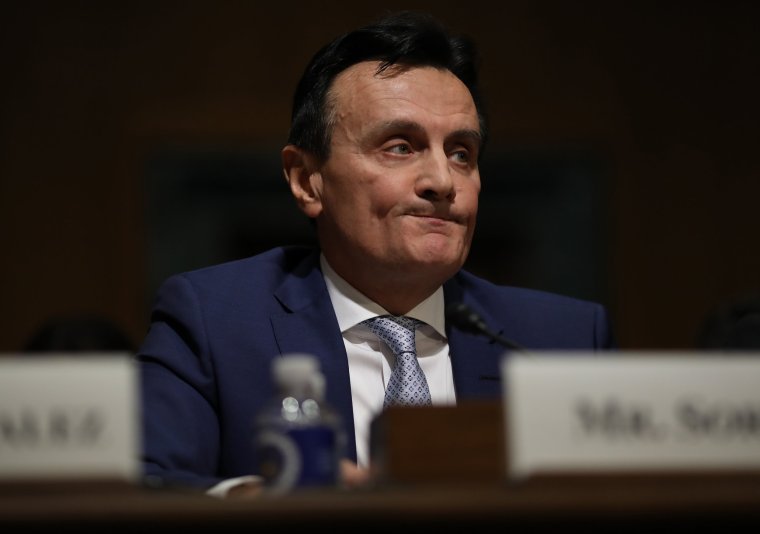AstraZeneca has become the only company on the UK stock market with a £200bn valuation.
The pharmaceuticals group hit the milestone as its shares rose 1.2 per cent to 12,928p, leaving the drug company with a £200.02bn valuation.
It overtook oil group Shell earlier this year to become the most-valuable listed company of the London Stock Exchange. The performance has seen its shares climbed almost 20 per cent since January. Only Shell and telecoms group Vodafone have previously exceeded the £200bn threshold before falling back.
Best known in the UK for its Covid vaccine, which saved millions of lives around the world, the company was formed in 1999 by the merger of Astra of Sweden and Britain’s Zeneca, which was created after the break-up of ICI’s pharmaceuticals and agrochemicals businesses.
The drug maker has grown rapidly under chief executive Pascal Soriot, after rejecting a hostile bid from US rivals Pfizer in 2014.
Afterwards he refocused it on research and development. Last year, the company pledged to release at least 15 new drugs by 2030 and said its “differentiated and growing portfolio of approved medicines, global reach and rich R&D pipeline give us confidence that we will continue to grow faster than the industry over the near and medium term”.
Last month the Anglo-Swedish firm raised its full-year guidance after second-quarter revenue and profits beat analysts’ expectations. Soriot outlined plans in May for the company to reach annual revenues of $80bn by 2030.
AstraZeneca’s French-born Australian executive Soriot headed a list of top earners compiled by the High Pay Centre, with bosses of Rolls-Royce and HSBC also included in the top 10. He earned a total of £16.85m.

Under Soriot’s leadership it has revamped its drugs pipeline and developed a series of blockbuster treatments from cancer and cardiovascular diseases as well as rare disease medicines.
Last month it said its research-and-development expenditure climbed 13 per cent in the second quarter as it continues to invest in its lucrative drugs pipeline.
He also called for the UK government to rethink the way it funds new medicines, after the drugs watchdog National Institute for Care and Excellence said that one of its latest cancer drugs Enhertu was too expensive and did not provide value for money.
The decision means that women with advanced breast cancer in England and Wales are denied a drug that cuts the risk of the disease spreading by more than a third.
AstraZeneca has declined to say whether it will reduce the price of the new drug which has earned $1.7bn in sales in the first half of the year.

Maurice Saatchi: I used to adore capitalism – then I had lunch with Margaret Thatcher